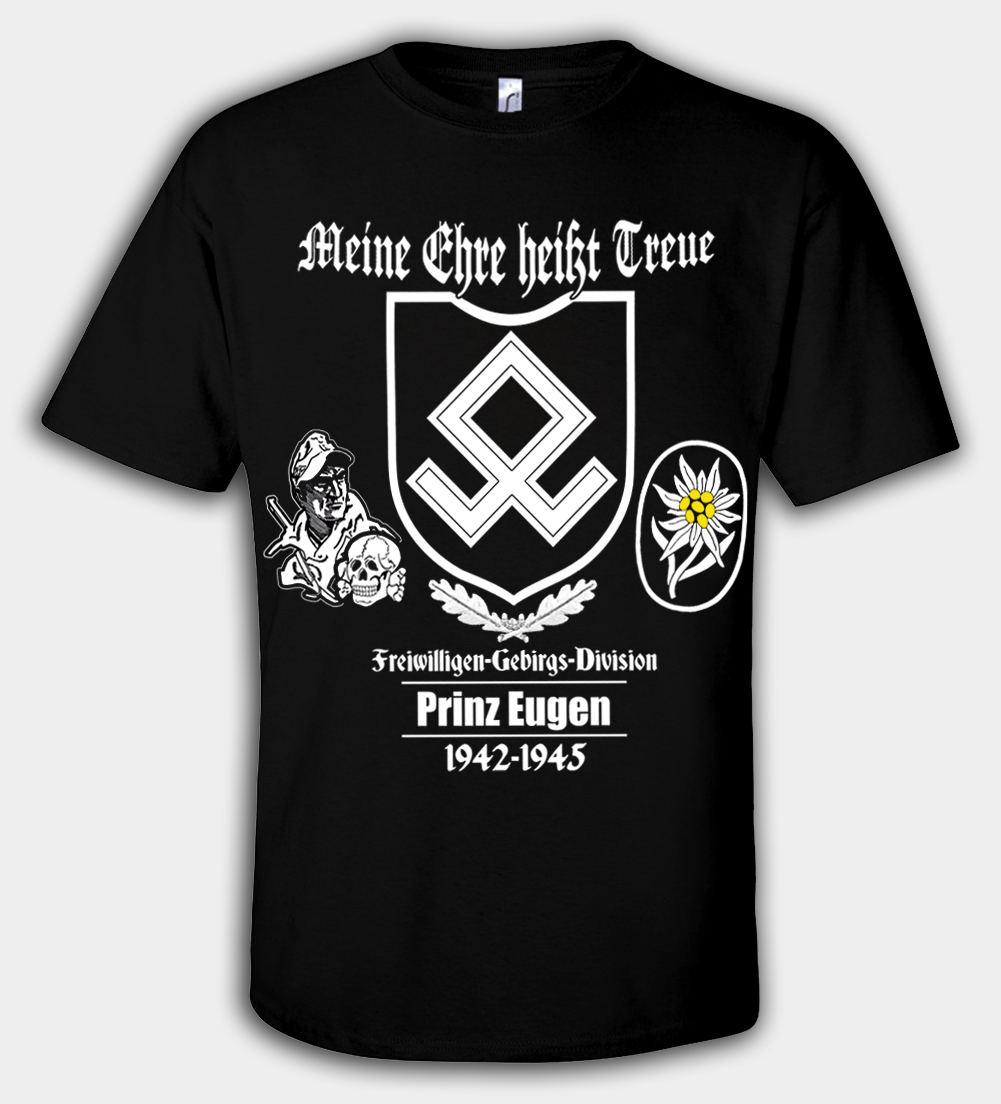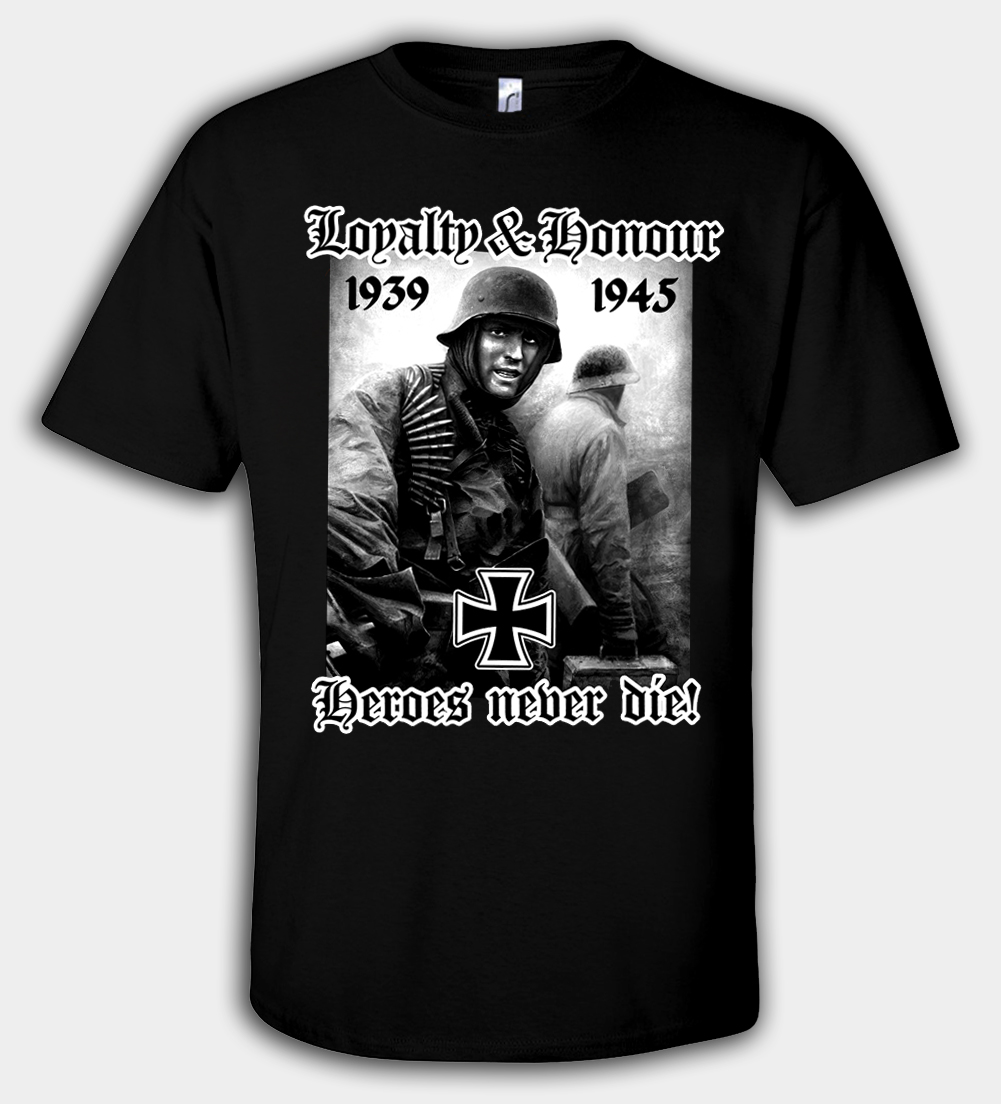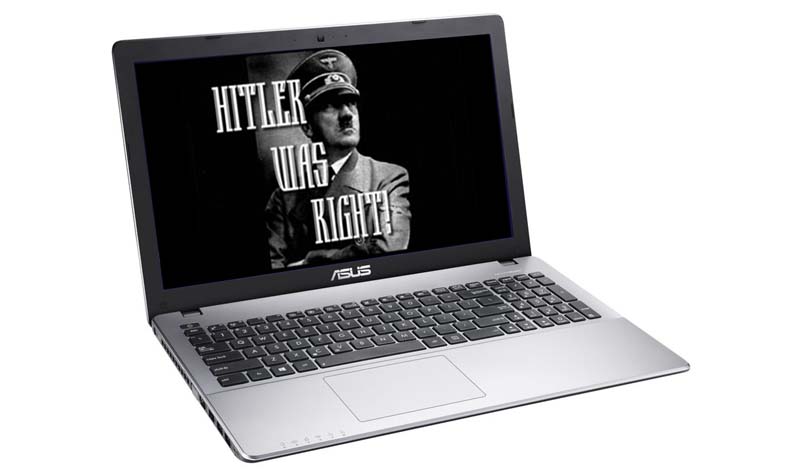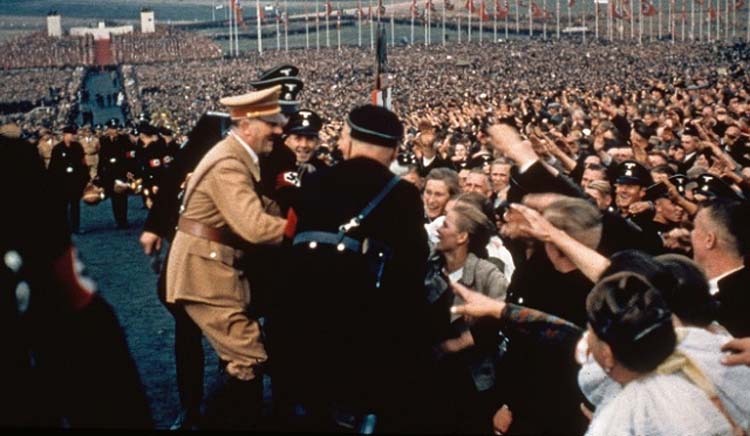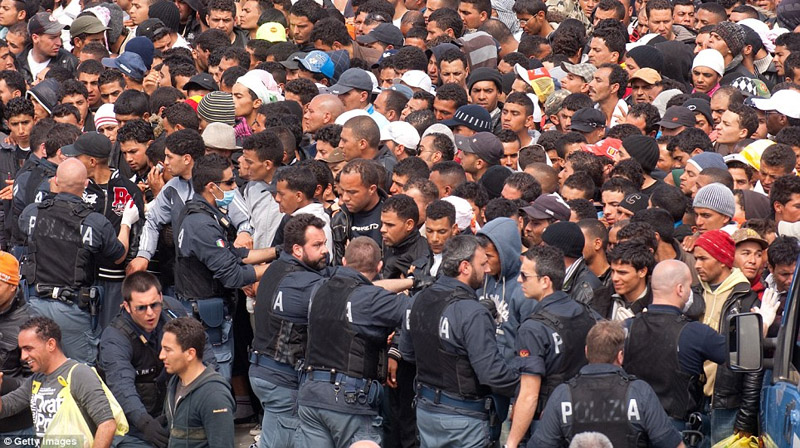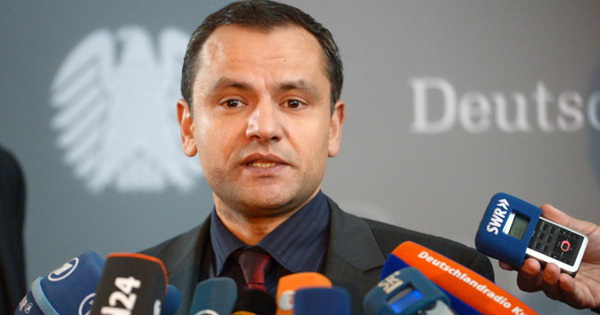Mark Weber: Dr. Goebbels and the "Big Lie" Legend
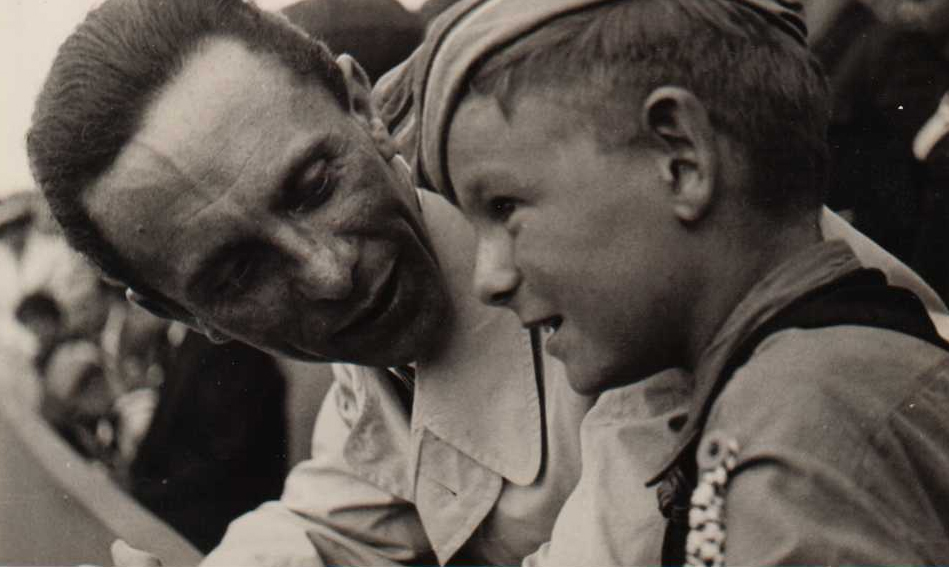 The popular image of this man, particularly in the United States, is a crude caricature...
The popular image of this man, particularly in the United States, is a crude caricature...
Contrary to popular belief, Goebbels was successful as a propagandist not because he was a master of the "Big Lie," but rather as a result of his fidelity to facts and truth. As biographer Heiber notes: “Goebbels was accordingly able to celebrate his information policy as being not only superior to the enemy’s in its monolithic character, but also of a ‘seriousness and credibility’ which ‘simply cannot be surpassed.’
The boast could be made with some justification: "Seen in the long view, Goebbels preached, the best propaganda is that which does no more than serve the truth."
Goebbels' frankness and even courage won him a measure of popular admiration. Writes Heiber: He understood the value of admitting reverses and even, now and then, errors; his readiness to be thus "candid" was a kind of knowledgeable wink at his audience -- "Look, I take you seriously. Let's be frank with one another" -- and enabled him to ensnare them all the more. The result was that later on, after 1943, after he had borrowed ... the "blood, sweat and tears" theme of Churchill, people were ready to believe in the ray of hope which he astutely let shine through the somber coloring of his speeches. [p. 134]
"As other influential Nazis began to creep into their shells," comments Heiber, "Goebbels could dare to appear before a mob and not only gain a hearing, but even arouse faith and hope ..." [p. 134]
As the war dragged on, Goebbels' front-page editorial essays in the weekly paper Das Reich played an increasingly important role in sustaining public morale. They were widely reprinted and routinely read over the radio. "His articles in Das Reich," acknowledges Heiber, "were indeed excellent, brilliantly written, and full of bright ideas ..." [p. 235]
Heiber also notes:
Goebbels' articles were carefully worked out more than a week before they were to appear, written in excellent, polished German, stylistically enjoyable and relatively discriminating in content; often they seemed illumined by the lofty wisdom of a great thinker. Their very titles were reminiscent of philosophical treatises: "On the Meaning of War," "The Essential Nature of the Crisis," "On the Work of the Spirit," "On Speaking and Being Silent," "The Indispensability of Freedom," "About National Duty in War." ...It is all very well turned and very solid. These articles made an impression, and Goebbels knew it. [ p. 252 ]
Regrettably, little of what Goebbels wrote and said during the latter war years -- when he was at the peak of his powers -- has been translated into English.
One of Goebbels' greatest wartime propaganda achievements was his exploitation of the Katyn massacre story. In April 1943, the Germans discovered at Katyn, near Smolensk in occupied Russia, a mass grave of thousands of Polish officers who had been taken prisoner by the Soviets in 1939, and shot by Soviet secret police in April 1940. On Goebbels' orders, German newspapers and magazines devoted great attention to the story, giving it weeks of detailed, often front-page coverage. His astute treatment of the story contributed significantly to a major Allied political defeat -- a break in relations between the Soviet government and the Polish government-in-exile. (Meanwhile, American and British officials and newspapers backed the Soviet lie that Germans were responsible for the atrocity.)
In addition to his work as the nation's chief propagandist, during the war Goebbels took on ever greater organizational and policy-making responsibilities, playing an increasingly important role in keeping the nation's industrial and social machinery functioning. In February 1942 Hitler entrusted him with special authority to oversee assistance to people ravaged in Allied air attacks -- a post that was to assume ever greater importance as the aerial bombardment of Germany steadily escalated.
In the summer of 1944 Hitler named him "Reich Plenipotentiary for the Total War Mobilization." Thus, during the final catastrophic months of the war Goebbels -- along with Armaments Minister Albert Speer -- directed Germany's human and material resources for maximum war production, while simultaneously continuing somehow to operate the nation's electric power and water plants, transportation and telephone systems, food and fuel supply networks, public schools, radio broadcasting and daily newspaper publishing. This organizational feat of keeping essential social and community services functioning, while at the same time maintaining and even sharply increasing armaments production -- in spite of devastating aerial bombardment and an ever worsening military situation -- is an achievement without historical parallel.
"We have become a people on the defensive," Goebbels wrote in Das Reich of Feb. 11, 1945 -- eleven weeks before the end. "We work and we fight, we wander, we leave our homes, we suffer and endure, and we do all this with a silent dignity which, in the end, will arouse the admiration of the entire world. Europe may well be happy that it still possesses such a people. Today this people is the salvation of Europe. Tomorrow, therefore, it will be Europe's pride."
His final radio address, broadcast over what remained of a tattered network, was delivered on April 19, 1945. As he had done every year since 1933, he spoke on the eve of Hitler's birthday. Even on this occasion, when the terrible end was glaringly obvious to all, Goebbels still spoke with eloquent, controlled passion, frankly acknowledging the supreme gravity of the situation while inspiring hope. He had not lost his ability to rouse his countrymen with fervor as well as a certain seeming nobility.
"Do not let yourself be disconcerted by the worldwide clamor that will now begin," he urged in a letter written to his stepson just days before his death. "There will come a day, when all the lies will collapse under their own weight, and truth will again triumph." In his final testament written just hours before he took his life, Hitler named Goebbels as his successor as Chancellor -- a tribute to steadfast loyalty even to the bitter end. But Goebbels held this empty position for just a few hours. After he and his wife had their six children put to death, and with Soviet troops just a few hundred yards away, on the evening of May 1, 1945, Joseph and Magda Goebbels ended their lives in the courtyard outside the Führerbunker.
Contrary to popular belief, Goebbels was successful as a propagandist not because he was a master of the "Big Lie," but rather as a result of his fidelity to facts and truth. As biographer Heiber notes:
Goebbels was accordingly able to celebrate his information policy as being not only superior to the enemy's in its monolithic character, but also of a "seriousness and credibility" which "simply cannot be surpassed." The boast could be made with some justification: Seen in the long view, Goebbels preached, the best propaganda is that which does no more than serve the truth." [p. 254]
"Goebbels' real lies, his conscious lies, always pertained to mere detail ...," writes Heiber. "Goebbels' lies were more in the nature of those equivocations and evasions by which government spokesmen everywhere seek to 'protect' the 'national interest'." [pp. 134, 135]
It is also common to imagine that, however skilled, Goebbels was little more than a clever ranter who won support from his countrymen by appealing to base feelings of envy, revenge, conceit and arrogant pride. This view, which implicitly demeans Germans as a nation of emotional and mental cripples, is especially widespread in the United States. If he thinks about it at all, the typical American imagines that if he had been living in Third Reich Germany, he would not have "fallen" for Goebbels' "obvious" lies.
Such a self-flattering view is based on ignorance. In his classic study, Propaganda (New York: Alfred A. Knopf, 1968; Vintage, 1973 [p. 54]), French scholar Jacques Ellul pointed out that Goebbels' postwar image is itself a propaganda distortion:
There remains the problem of Goebbels' reputation. He wore the title of Big Liar (bestowed by Anglo-Saxon propaganda) and yet he never stopped battling for propaganda to be as accurate as possible. He preferred being cynical and brutal to being caught in a lie. He used to say: "Everybody must know what the situation is." He was always the first to announce disastrous events or difficult situations, without hiding anything. The result was a general belief between 1939 and 1942 that German communiqués not only were more concise, clearer and less cluttered, but were more truthful than Allied communiqués (American and neutral opinion) -- and, furthermore, that the Germans published all the news two or three days before the Allies. All this is so true that pinning the title of Big Liar on Goebbels must be considered quite a propaganda success.
From The Journal of Historical Review, January-February 1995 (Vol. 15, No. 1), pages 19-21.
About the Author
Mark Weber studied history at the University of Illinois (Chicago), the University of Munich, Portland State University and Indiana University (M.A., 1977). In March 1988 he testified for five days in Toronto District Court as a recognized expert witness on Germany's wartime Jewish policy and the Holocaust issue. He was editor of the IHR's Journal of Historical Review from April 1992 to December 2000. He is currently Director of the Institute for Historical Review.
Popular products:
Recent news:
- White Students Turned Away from “Anti-Racism” Seminar for Being White
- Greek PM Warns of "Far-right Threat" in Europe
- The Dark Side of the "Liberation of Europe"
- "Former Republics of the USSR are on their Way to a Nazi Revival", Says Influential Zionist Group
- Mein Kampf: The world’s most dangerous book?
- Xenophobia Rising: Rome Removes Africans from Refugee Centre Besieged by Nationalists
- "If Jews Leave, Europe will Face Economic Disaster", Jewish Leader Warns
- Angry, White and Proud: New Documentary on English Nationalism (VIDEO)
- Golden Dawn Leadership to Stand Trial on Hitler’s Birthday
- Wreck of Kriegsmarine U-boat Located in Java Sea
- Germany’s Biggest Anti-Racism Crusader Pleads Guilty to Child Porn
- Dutch "Multicultural" Students Resist Holocaust Education
- In Germany, Fanta Ad that "Forgets Evil Nazi Past" is Pulled
- Dutch Police Investigate Sale of Soap Supposedly Made From Jewish Holocaust Victims’ Remains
- In London, Teacher Fined For Posting Hitler Picture With Words "You Were Right"
- Falsely Accused Czech Publishers of Adolf Hitler Speeches Seek Compensation
- Race Riots Coming to Toledo: National Socialists Plan Return for Demonstration after a Decade
- VIDEO: Nationalists Confront Antifa Protesters at Arizona State University
- Italians are Resisting Mass Non-White Immigration
- "Jews using Holocaust to Suck the Blood of Germans," Egypt TV Host Says (VIDEO)
- UK: "This Flat is for Blacks Only": Shocking Racist Campaign to Force White Mum Out of Home
- Norway Deports Record Number of Muslim Immigrants
- Italian Anti-Immigration Rally Draws Thousands of Nationalists in Rome
- Anti-Semitism Spreading Across Europe, Says Study
- The Witch Hunt Continues: Ex-SS Medic, 94, Charged with Mass Murder against Jews








